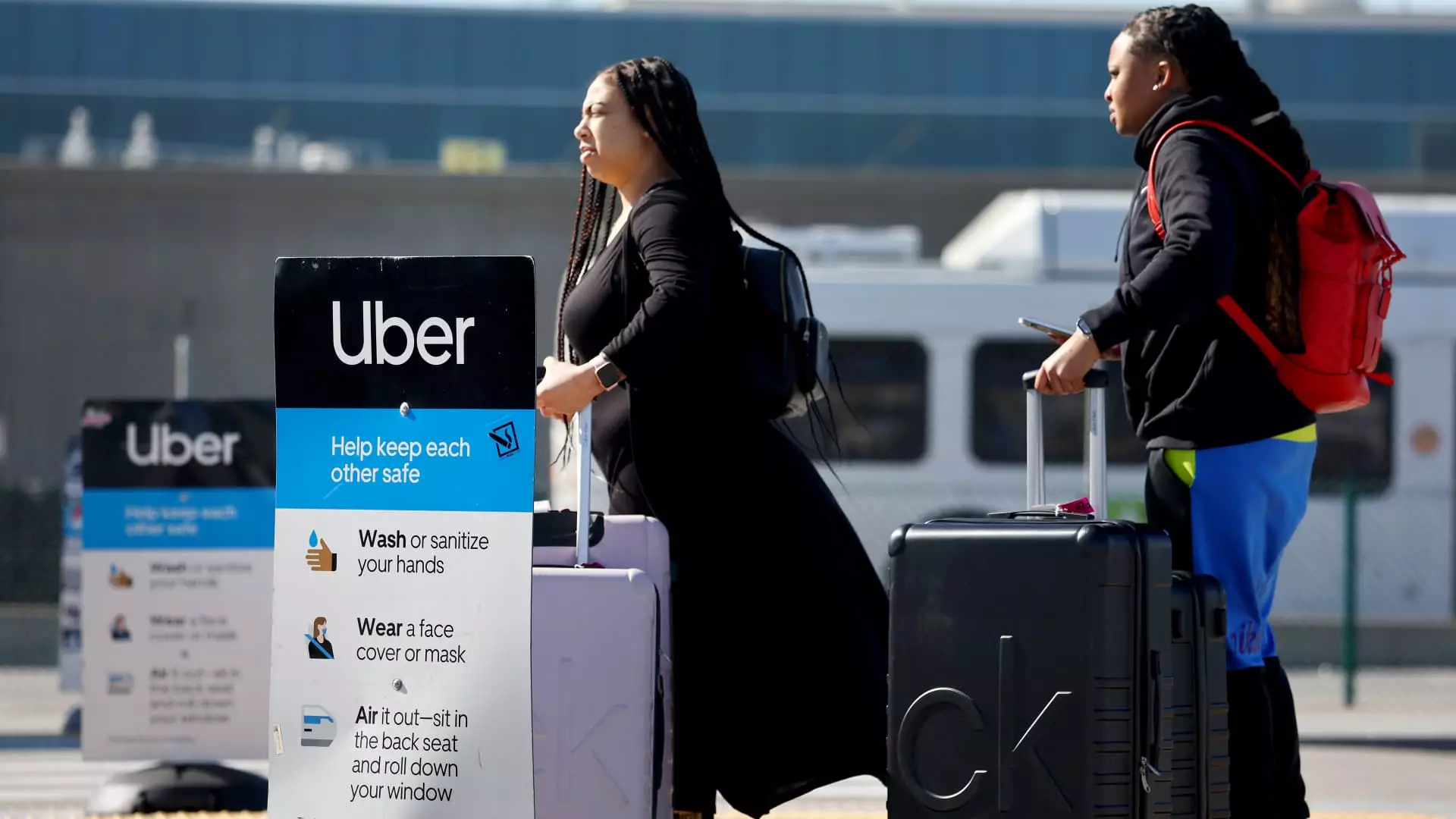In a surprising yet strategic move, Delta Air Lines has announced a partnership with Uber, effectively terminating its existing relationship with Lyft after eight years. This transition marks a significant evolution in the airline’s SkyMiles loyalty program, aiming to enhance the travel experience for its customers. The new collaboration opens avenues for travelers to accumulate SkyMiles more efficiently during their airport journeys, a timely initiative as air travel continues to rebound following the pandemic’s impact.
According to the companies, SkyMiles members can accrue miles depending on the type of Uber service they utilize. For instance, passengers taking UberX rides to airports will earn one mile per dollar spent, while premium services like Uber Comfort and Uber Black will yield two miles per dollar. More lucrative is the Uber Reserve option, which rewards travelers with three miles per dollar. Additionally, when ordering through Uber Eats, SkyMiles members can earn a mile for every dollar spent on orders exceeding $40, adding greater value to this partnership.
This new arrangement is not just a revenue grab for Delta and Uber; it directly aligns with a broader trend among airlines utilizing partnerships to expand their loyalty offerings. Airlines have increasingly focused on collaborating with diverse brands ranging from food and beverage chains to car rental services, thereby facilitating a more integrated travel experience. Indeed, Delta’s strategic partners already include established names such as Starbucks, Hertz, and Ticketmaster.
Impact on Existing Partnerships and Customer Transition
With Delta transitioning away from Lyft, customers eager to see how this impacts their loyalty benefits must take heed. Delta’s spokesperson assured that those who have previously linked their Lyft accounts will continue to earn miles until April 7, giving ample time for travelers to adjust. Hints of Delta’s rationale for choosing Uber over Lyft are mostly speculative, though there lies a potential connection with the airline’s financial relationships, particularly with American Express. Delta’s credit card offerings often provide cardholders with incentives for using Uber, which could have played a role in this pivot.
Lyft, on the other hand, maintains a forward-looking approach. In a statement reflecting on their partnership journey, they underscored their ambitions to collaborate with brands that share a customer-centric philosophy, indicating their intent to innovate within the travel space alongside other companies like Alaska Airlines and Mastercard.
The Financial Landscape
As Delta prepares for its quarterly earnings report, the implications of this change are noteworthy. The airline anticipates generating a remarkable $7 billion in revenue from its American Express partnership in the upcoming year. This partnership positions Delta favorably, particularly as it aims for a long-term target of generating $10 billion annually from these ventures. On the contrary, Lyft, which showcased a user base of 24.4 million riders by the end of the third quarter, reported record booking levels, signaling robust activity but also emphasizing the competitive landscape for ride-hailing services.
The dynamics between Uber and Lyft continue to evolve, with Uber currently enjoying a considerable advantage, boasting 161 million monthly active users across its ride-hailing and food delivery services—a testament to its formidable presence in the market.
The announcement of this partnership was made amidst the Consumer Electronics Show (CES) in Las Vegas, spotlighting other Delta innovations such as the introduction of an artificial intelligence-powered assistant within its app. As airlines and related companies strive to integrate technology into their offerings, Delta’s initiatives may not only attract more customers but also improve passenger experiences in ways that matter most.
Delta’s pivot from Lyft to Uber is not merely about changing partnerships. It’s an embodiment of evolving customer preferences, competitive strategizing, and technological advancement. This shift could redefine travel experiences for SkyMiles members, offering them an unprecedented opportunity to earn rewards effortlessly, while also underscoring the fierce competition within the ride-hailing industry. As these partnerships evolve, the airlines and their associated networks may well transform the landscape of loyalty programs for travelers around the globe.

